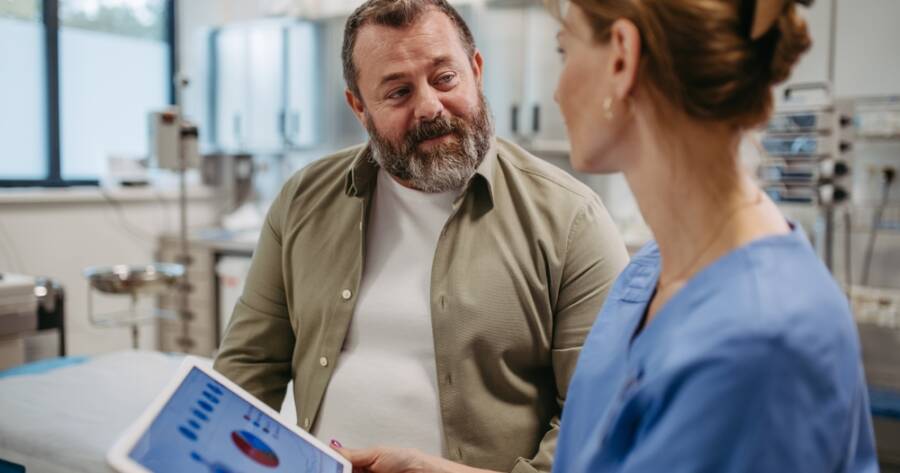Weight loss can be a challenging journey, and many people explore a variety of methods to achieve their health goals. Among these options, clinical trials have emerged as a pathway for individuals to access innovative weight loss interventions. By participating in research studies, individuals can benefit from structured programs, professional oversight, and cutting-edge therapies. This article delves into how clinical trials contribute to weight loss efforts, what participants can expect, and the considerations involved.
What Are Clinical Trials and Their Role in Weight Loss?
Clinical trials are research studies designed to evaluate new medical treatments, procedures, or approaches to health challenges. In the realm of weight management, these trials often focus on testing new medications, dietary plans, behavioral therapies, or surgical techniques. Participants in weight loss clinical trials may gain access to treatments not yet widely available, potentially benefiting from innovative approaches.
Trials are typically conducted under strict medical supervision, offering participants an additional layer of safety. For example, some trials investigate how certain medications can influence appetite regulation or metabolic processes, while others might focus on behavioral strategies for sustaining healthy habits. While participation can be beneficial, it’s important to note that results can vary greatly among individuals.
Benefits of Joining a Weight Loss Clinical Trial
For those considering weight loss clinical trials, the potential benefits can be multifaceted. These trials provide structured environments where participants follow detailed protocols and receive regular guidance from healthcare professionals. One significant advantage is access to new treatments or programs that are not yet available to the general public.
Additionally, participants often receive comprehensive health evaluations at no cost. These evaluations might include detailed body composition analyses, metabolic testing, and regular follow-ups to monitor progress. This personalized attention can provide insights that might not be readily available in conventional weight loss programs.
Furthermore, participants may feel motivated by being part of a scientific endeavor. Knowing that their efforts contribute to advancing medical knowledge and helping others can provide a unique sense of purpose. However, participants should keep in mind that success is not guaranteed, and some interventions may not yield the desired results for everyone.
What to Expect When Participating in a Clinical Trial
Understanding the process and requirements of clinical trials is essential before enrolling. Typically, trials begin with a screening phase, where researchers assess whether individuals meet the study’s inclusion criteria. These criteria may include factors such as age, weight, medical history, and current health status.
Once enrolled, participants are often assigned to specific study groups, which may involve receiving the experimental treatment, a placebo, or an established treatment for comparison. To maintain scientific rigor, many studies use a double-blind design, meaning neither the participants nor the researchers know who receives which intervention until the study concludes.
Throughout the trial, participants are required to adhere to detailed guidelines, which might involve taking medications, following prescribed diets, or attending regular counseling sessions. Monitoring typically includes frequent check-ins, lab tests, and progress assessments. While this level of involvement can feel demanding, it also ensures that participants’ health and safety are prioritized.
Potential Risks and Ethical Considerations
While clinical trials offer unique opportunities, they are not without risks. Experimental treatments may carry side effects or prove ineffective. For this reason, researchers provide thorough informed consent forms that outline potential risks and benefits, ensuring participants are well-informed before committing.
Ethical standards are a cornerstone of clinical trials. Institutional Review Boards (IRBs) rigorously review studies to ensure that they prioritize participant safety and adhere to ethical guidelines. Participants also have the right to withdraw from the trial at any point without facing penalties.
It is crucial for individuals to weigh the potential risks against the possible benefits and to discuss their options with healthcare providers. Participating in a trial should always be a well-informed decision aligned with personal health goals and values.
How to Find Weight Loss Clinical Trials
Finding a clinical trial that aligns with personal needs and goals requires research. Trusted resources such as ClinicalTrials.gov, a database maintained by the U.S. National Library of Medicine, list ongoing and upcoming studies. Healthcare providers may also offer recommendations based on individual health profiles.
When evaluating potential trials, participants should consider factors such as the location, duration, and requirements of the study. Asking detailed questions during the initial consultation—such as the trial’s purpose, what’s expected of participants, and what support is provided—can help individuals make informed decisions.
Learn More Today!
Clinical trials present an intriguing avenue for individuals seeking to achieve weight loss goals while contributing to medical research. By offering access to innovative treatments and professional oversight, these studies provide unique opportunities for participants.
However, it is essential to approach trials with realistic expectations and a clear understanding of potential risks. For those willing to embrace the journey, clinical trials can be a valuable step in exploring effective weight loss strategies while advancing the science of health and wellness.




